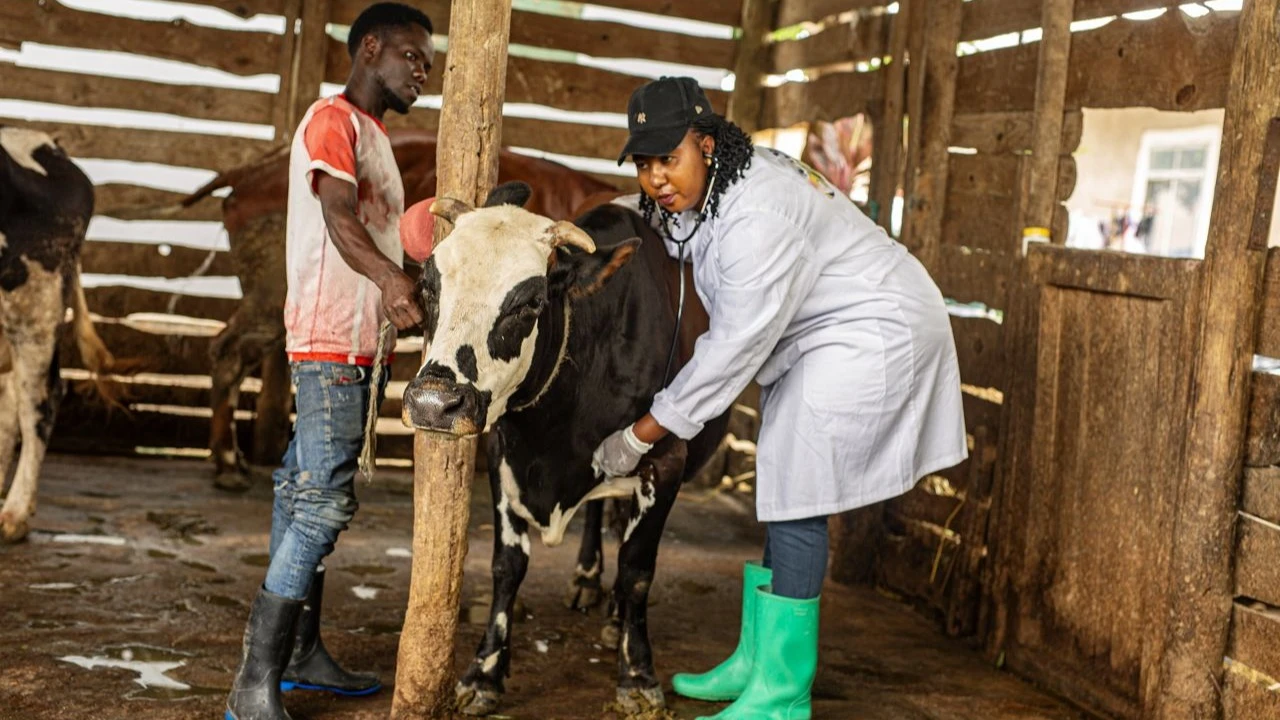Healthy coexistence: Tanzanians urged to take responsibility for preventing zoonotic diseases

THE World Zoonosis Day is celebrated on every July 6 to honour the pioneering work of Louis Pasteur, who successfully administered the first rabies vaccine in 1885.
This annual observance is a reminder that zoonotic diseases remain a significant public health challenge, with recent statistics showing that 60 percent of all outbreak-causing diseases originate from animals.
Zoonotic disease can spread to humans through a number of ways, of which one of it is when a human comes into direct contact with the saliva, blood, urine, mucus, faeces, or other body fluids of an infected animal, such as by being bitten by the infected animal.
The disease can also spread indirectly if humans come into contact with areas where animals live and roam or come into contact with objects or surfaces contaminated with germs. The theme of the 2024 World Zoonoses Day was ‘One World, One Health: Prevent Zoonoses’.
'One Health' according to the World Health Organization (WHO) is an approach in which multiple sectors communicate and work together to achieve better public health outcomes. The One Health approach is particularly relevant includes the control of zoonoses (diseases that can spread between animals and humans, such as avian flu, rabies and Rift Valley Fever).
A One Health approach is key to the management of shared threats for future outbreaks and pandemics at the human-animal-environment interface.
The government through the Prime Minister's Office and the Ministry of Livestock and Fisheries in collaboration with the United States Agency for International Development (USAID), through Breakthrough ACTION project, joined the global community in observing World Zoonosis Day, utilizing the occasion to engage Tanzanians in discussions about zoonotic diseases that can be transmitted from animals to humans and promote joint efforts to prevent and control these diseases.
Dr Salum Manyatta is the Assistant Director for One Health at the Prime Minister's Office, he said: “We are urging Tanzanians to take responsibility for their health by adopting good hygiene practices, seeking medical attention if they suspect they have contracted a zoonotic disease, and reporting sudden animal deaths to veterinary professionals within their communities," said
Six zoonotic diseases have been prioritized in Tanzania due to their significant impact on the community: rabies, anthrax, brucellosis, viral hemorrhagic fevers like Marburg and Ebola, zoonotic influenza, and human African trypanosomiasis/sleeping sickness.
Experts emphasize that a holistic One Health approach is necessary to address these diseases effectively. "Rabies is a major concern due to its high fatality rate and high incidence among children," explained Dr Manyatta.
According to Dr Stanford Ndibalema, Assistant Director for Veterinary Public Health at the Ministry of Livestock and Fisheries, zoonotic diseases can be transmitted through various routes, including direct contact with infected animals, contaminated food consumption, improper food handling, and inhalation of particles, bites and scratches from infected animals.
“Consumption of meat that has not been properly cooked and unsupervised handling of dead animals can lead to the transmission of diseases like anthrax,” added Dr Ndibalema.
To combat these diseases, the Government has launched a national campaign dubbed ‘Holela Holela Itakukosti’ (Recklessness is Costly) campaign to facilitate discussions about zoonotic diseases and promote preventive measures among the general public.
The campaign aims to encourage Tanzanians to take responsibility for their health by adopting good hygiene practices, seeking medical attention if they suspect they have contracted a zoonotic disease, and reporting sudden animal deaths to veterinary professionals within their communities.
“This campaign is crucial in raising awareness about zoonotic diseases and promoting preventive measures among the general public," said Dr Ndibalema.
He was of the view that by working together, Tanzanians can prevent the diseases from spreading and ensure a healthier nation.
The public is urged to adopt positive preventive and treatment behaviors such as vaccination of animals, proper cooking of food, and proper handling of dead animals.
“We have been encouraging people to report any sudden animal deaths to veterinary professionals within their communities,” said Dr Ndibalema.
Zoonotic diseases account for approximately 60 percent of existing and 75 percent of newly emerging infectious diseases in humans, including notable outbreaks like SARS-CoV-2 (COVID-19), significantly affecting health security and the African economy.
Recent zoonotic disease outbreaks in the Southern African region include Anthrax, Crimean-Congo haemorrhagic fever (CCHF), H5N1 Bird Flu, and COVID-19.
Top Headlines
© 2025 IPPMEDIA.COM. ALL RIGHTS RESERVED

























